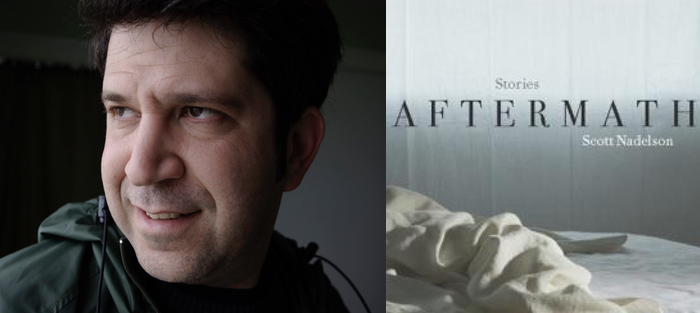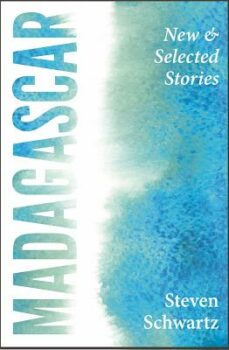Despite a literary market that increasingly marginalizes the short story, Scott Nadelson is proud to call himself a story writer. Insisting recently that “the story [should] be considered a different genre entirely than the novel, rather than its undersized cousin.” Nadelson has published three short story collections to date. The latest, Aftermath, was released in September by Hawthorne Books. Nadelson is a winner of the Oregon Book Award for short fiction, the Reform Judaism Fiction Prize, and the Great Lakes Colleges New Writers Award. “Oslo,” included in Aftermath, was selected as a Distinguished Story of 2009 by the editors of The Best American Short Stories.
Nadelson is the Hallie Ford Chair in Writing at Willamette University. He also teaches in the Rainier Writing Workshop MFA Program at Pacific Lutheran University. He lives in Salem, Oregon. A former student of Scott’s, I took his short story workshop as an undergraduate at Willamette. This interview took place over e-mail in September and October 2011.
Interview:
JULIE JUDKINS: You’ve spoken about becoming interested in writing after discovering Bob Dylan’s early records in your father’s collection. What was it about Dylan’s lyrics and voice in particular that inspired you?
SCOTT NADELSON: I think what happened when I started listening to Dylan was that I heard language—carefully constructed language—in a context I couldn’t easily categorize or contain. I was one of those high school kids who didn’t care much about anything, or didn’t know that you could care about anything; I went to school, did my homework some of the time, watched a lot of TV, and listened to music as loud as I could. Until then, any kind of written language I didn’t understand I’d quickly find frustrating and abandon; if I understood it too easily, then I’d dismiss it as not worth my time. When I listened to music, I hardly paid attention to the lyrics; if anything they were a way of following the melody and singing along to the beat. But Dylan put language forward in a way I couldn’t ignore even if I wanted to. In the best of his songs, his lyrics were mysterious and evocative but also precise, playful, full of emotion, unsentimental. Plus there was an energy in the progression of words, in their rhythm, in the layers of imagery they unfolded that seemed to contain more meaning than the words or images themselves. I was surprised to find so much pleasure and tension in the way language could be approachable one moment and then move just out of reach the next.
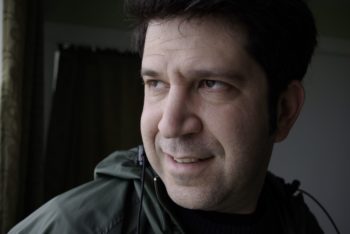 I’d listen to, say, “Chimes of Freedom,” and I’d feel like I was getting a pretty good handle on it—the speaker hears in peals of thunder bells tolling freedom for the downtrodden masses—and then out would come these lines that were so gorgeous and baffling that my head would empty of all rational and simplistic thought: “Through the mad mystic hammering of the wild ripping hail / the sky cracked its poems in naked wonder.” I’m sure it’s because I already was drawn to music that I was open to lines like this, that I was willing to let them seep into me, even if I couldn’t quite grasp them; if I’d read them on the page, I probably would have turned away. But once Dylan’s voice got into my head, along with the possibility that language could make me feel something even if I didn’t know why, I was soon more open to other forms of writing as well.
I’d listen to, say, “Chimes of Freedom,” and I’d feel like I was getting a pretty good handle on it—the speaker hears in peals of thunder bells tolling freedom for the downtrodden masses—and then out would come these lines that were so gorgeous and baffling that my head would empty of all rational and simplistic thought: “Through the mad mystic hammering of the wild ripping hail / the sky cracked its poems in naked wonder.” I’m sure it’s because I already was drawn to music that I was open to lines like this, that I was willing to let them seep into me, even if I couldn’t quite grasp them; if I’d read them on the page, I probably would have turned away. But once Dylan’s voice got into my head, along with the possibility that language could make me feel something even if I didn’t know why, I was soon more open to other forms of writing as well.
At that point, of course, I still mostly wanted to be a rock star with really cool hair. But now I also wanted to be one who could write a song that made you forget to breathe.
You’re not the first writer to list Dylan as an early influence. I think it speaks to that community’s ethos as not only poets, but storytellers. I’d argue that many of Dylan’s songs – “Tangled Up In Blue” comes to mind – are condensed stories. Do you agree? (As a side note, speaking of influences, when I looked up “Chimes of Freedom,” realizing I didn’t know much about its origins, I learned that Dylan himself wrote the song after reading Rimbaud.)
Absolutely. In those early years Dylan owed a lot to Rimbaud and the beat poets, but he was also a terrific storyteller. He had a gift for pacing and distilling narrative down to its essence. Some of his best stuff is narrative: “Tangled Up in Blue,” for sure, and pretty much everything else on Blood on the Tracks; “Ballad in Plain D”; most stuff on John Wesley Harding and especially on The Basement Tapes.
I once read an interview with Dylan, or maybe I heard another songwriter talking about it—or, who knows, maybe I made it up—in which he claimed that he hated nothing worse than story-songs. In response, the interviewer, somewhat in shock, listed off a number of those songs with narrative impulses, and Dylan snapped, in near rage, “Those aren’t story-songs! They’re ballads!”
What I love about that anecdote is that it suggests Dylan saw himself working in a particular narrative tradition; the idea wasn’t to stuff a story arc into a five minute song, but to use and update the ballad form to explore contemporary narratives. I think it’s because he understood the form so deeply, had listened to and sung old ballads so many times that he absorbed their narrative rhythms, their pacing, their compression and mystery, that his narrative songs don’t feel dated like those of a lot of his contemporaries.
I’m curious whether your experience as a reluctant reader influenced your teaching methodology? Did that perspective give you any insight into how to reach students who don’t think literature is relevant to their lives?
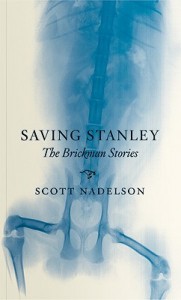 That’s a great question. It may be an exaggeration, but I’ve often believed that literature saved my life; I was heading down a fairly self-destructive path when I got serious about reading and writing, and discovering something that meant so much to me allowed me to refocus my energy in positive directions. And that has definitely affected the way I approach teaching and the way I think about education generally. The reason I never cared about literature when I was young was that no one made me understand that I should or could care; teachers just told me I had to learn that a simile uses “like” or “as” and that Shakespeare wrote in iambic pentameter. They didn’t tell me why those things mattered. The problem, I think, was that by the time I started school the study of literature had become divorced from the physical, emotional, and intellectual experience that literature is meant to create. No one talked about how Hamlet had moved them, or how Huckleberry Finn had made them laugh; they just talked about whether Hamlet really went crazy and about the symbolism of the Mississippi River. Above all, no one talked about loving literature, and if you don’t love something, what’s the point of spending hours reading and talking about it?
That’s a great question. It may be an exaggeration, but I’ve often believed that literature saved my life; I was heading down a fairly self-destructive path when I got serious about reading and writing, and discovering something that meant so much to me allowed me to refocus my energy in positive directions. And that has definitely affected the way I approach teaching and the way I think about education generally. The reason I never cared about literature when I was young was that no one made me understand that I should or could care; teachers just told me I had to learn that a simile uses “like” or “as” and that Shakespeare wrote in iambic pentameter. They didn’t tell me why those things mattered. The problem, I think, was that by the time I started school the study of literature had become divorced from the physical, emotional, and intellectual experience that literature is meant to create. No one talked about how Hamlet had moved them, or how Huckleberry Finn had made them laugh; they just talked about whether Hamlet really went crazy and about the symbolism of the Mississippi River. Above all, no one talked about loving literature, and if you don’t love something, what’s the point of spending hours reading and talking about it?
So in my teaching life, I try to express this love as much as possible. The work I choose to share with my students is work that moves me, that haunts me, that mystifies me, and I try to always return our conversations to the students’ actual experience reading a story or poem: where and how it made them nearly cry, where and how it sped up their pulse, where and how it suggested connections that made their heads spin. I try to remind writing students that they should find joy in the process, and if they can’t, then writing might not be the best pursuit for them. I think people should devote their lives to things that matter so much to them that they can’t imagine doing anything else. And education should be a means to discovering and deepening those passions; it should help people find the things that are going to make them want to get out of bed on difficult mornings. The most successful writing class I can imagine is one in which I help beginning writers find a reason to face a blank page when the words aren’t coming easily.
That sounds like a worthy outcome for more experienced writers as well. It isn’t a coincidence that writing is often described with religious terminology—i.e. Joyce Carol Oates’ The Faith of a Writer. So much of writing is facing that blank page or disconnected jottings, and, to quote Lorrie Moore, “trudg[ing] ahead in the rain, regardless.”
In a recent interview on The Nervous Breakdown you revealed (to yourself) that you’re a “floundering” writer. You said, “Most of the time I feel like I have no idea what I’m doing, no idea where my ideas are leading me, but I’m stubborn about following them through, and eventually, if I’m lucky, the effort leads me somewhere interesting.” Can you share how you keep yourself motivated even when you are “floundering”? I love the image of a struggling Eudora Welty cutting apart her drafts, re-arranging them, and then piecing them back together with straight pins. Do you have any rituals or tricks to share?
I guess the thing that keeps me going, even during the most frustrating periods, is that I love process more than product. Whenever I’m stuck, or confused about where a story is heading, I try to return to those things in writing that bring me the most joy: odd perceptions, tense dialogue, obsessive thought. I try to have fun riffing on a little scene or quiet conflict and not worry about whether anything will come of it. And small, unexpected discoveries spur me on to search for more discoveries. Even if an idea finally crumbles to dust—which happens all too often—I usually have other little scenes or conflicts in mind, and the promise of those small discoveries gets me to sit down and work every chance I get.
I wish I could say I had useful tricks or rituals. I love that image of Welty with her cut-up drafts, too. My process is much less delicate, more bludgeon than straight pin. I often just keep going back to the beginning of a story or essay I’m struggling with, trying to find the right angle in. I write forward until I get stuck, then start again, from a slightly different angle. I often end up with as many as fifty false starts before I find my way to the end of a first draft. I used to resist this process, and I still sometimes find it maddening, but now I think it’s mostly productive: what happens is that in writing these false starts I’m working to find the right storytelling voice, the one that can carry the material, that can access the characters and conflicts in the most effective way for the story. It’s rare that I find this voice on the first few tries, in part because I don’t know the characters well enough yet to understand their most crucial concerns. There’s probably a more efficient way of going about it, but I just keep beating my head against a piece until something opens up or it gives me such a headache that I have to set it aside.
The other thing I do when I’m having trouble finding my way is to look for models, especially in old favorites. If I’ve just had a terrible writing morning, I’ll pull down a Leonard Michaels story, for instance, and within a few minutes I’m in such awe, experiencing such pleasure in his voice, in the movement of his prose, that I’m already wanting to get back to work. It’s not that I then try to write a Leonard Michaels story; but that a Leonard Michaels story is even possible, that such a thing can exist, makes me so grateful and excited that whatever setback I’ve just experienced, even if it’s a significant one, soon feels diminished in comparison.
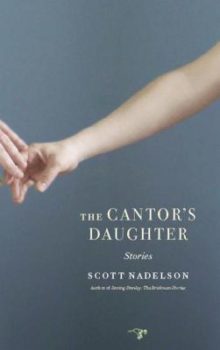 You have an impressive publication history. This September saw the release of your third story collection, and a book of autobiographical essays is forthcoming in March 2013. Considering that you balance teaching in addition to your writing, to what do you credit your prolificacy?
You have an impressive publication history. This September saw the release of your third story collection, and a book of autobiographical essays is forthcoming in March 2013. Considering that you balance teaching in addition to your writing, to what do you credit your prolificacy?
If I can credit anything it’s mostly stubbornness and obsession. Teaching and writing take a lot of energy, and often the same kind of energy, and doing both at the same time means putting in long hours and feeling stretched thin. I sometimes wish I could give myself a break during the school year, and not try to write while I’m teaching, as some writers I know do, but I’ve come to find I really need the work as part of my daily life. I’m not a terribly religious person, but writing has become something of a spiritual practice for me, like meditation, or maybe more like mental yoga, and without it I feel ungrounded. A few days without it, and I’m pretty quickly at loose ends. A week, and I’m miserable, and my wife starts begging me to get back to work.
Do you have a specific schedule or just grab the time when you can?
Until my daughter was born, I had a pretty regular writing schedule; I’ve managed to keep my mornings free to write for a couple of hours before having to turn to other things. With a now one-year-old, that has changed quite drastically. I almost never have more than an hour of unbroken time, and I’ve had to adjust the way I work. Now I’ll write for half an hour, forty-five minutes at a stretch, but I still try to do it every day if I can. What I’ve found is that I used to waste an enormous amount of time. I’d putter around for half an hour, looking at books on my shelves, staring out the window, before I’d get down to serious work. If I do that for thirty seconds now, I know quickly I’m going to lose whatever time I’ve got. I’m sure that puttering was useful to get me in a certain mindset, but now it seems like a luxury I’ve had to leave behind. Right mindset or not, I’ve got to get typing.
Because I work in short(ish) form, I never write an entire draft of a book at once. In fact, I usually don’t even know I’m working on a book until well into the process. I just work on stories or essays, usually a couple at a time in different draft stages, until I have a number of them that start to speak to each other, and then I start thinking about the whole. So by the time I’m working on something I’m calling a book, much of it is already in late draft stage, and some of it might even be close to finished. Then it becomes a matter of filling in gaps, smoothing rough edges between pieces, thinking about a larger arc.
You’re known for placing your stories in your native New Jersey, even though you’ve lived in Oregon since 1996. Beyond writing what you know, to what do you owe this fascination with your birthplace? What is it about writing in absentia that appeals to you?
When I started writing, I never thought New Jersey would become such a central part of my fiction, but now I write very few stories that aren’t set there. And hardly any of my stories have characters who haven’t come from the place where I grew up. I do think part of this is familiarity, or at least that’s the way it started. But more important is how the setting has evolved in my imagination over the past fifteen years. New Jersey has become less an actual place in my fiction than a state of being, a kind of limbo between the great city and the vast continent, where people are caught between retreat and full engagement with life and all its uncertainty. What the place offers me is a setting ripe with quiet tension and internal conflict, as well as a metaphor for the illusion of safety and security amidst the chaos of human intimacy and connection.
I sometimes send my New Jerseyans off into foreign lands, and a different kind of tension arises when they bring their baggage of fear and repressed desire into places where they can no longer contain the contents. In the new book, for example, I’ve got a kid with his grandparents in Jerusalem, and there all hell can break loose when his family conflict plays out against the backdrop of a much wilder setting than the one he’s left behind. But the conflict is still one that evolves in and out of his New Jersey state of being—I can’t imagine him coming from anywhere else.
Do you ever research places you’re writing about, or do you write from your memory and imagination?
The research I do is almost always a result of necessity. I need to know the name of a certain street, or remember where a lake is located in relation to a mountain, or look at a picture of a church in Zurich, and then I do the most cursory possible Internet searching to find the crucial piece of information or something that’s a close approximation. In other words, I let my imagination lead me and use research only to fill in gaps; but as soon as a gap is filled, I go as quickly as possible back to the imagination. Being a writer has meant never being an expert on anything, but having the barest trivial knowledge and surface understanding of a whole bunch of different things.
How does a story benefit from being set in a specific place as opposed to an anonymous city?
It really depends, I think. There can be something very freeing about using a landscape that’s open, that doesn’t restrict you to a particular set of geographic and cultural markers. Think how much more exciting Kafka’s vision of America is than if he’d actually known what New York City looked like. But using a real place can offer all kinds of opportunities for texture, for tensions that arise out of a character’s relationship to that place and to a reader’s associations with it. I do think it takes a certain kind of imagination to create a place out of nothing and to make it specific and real enough that a story can inhabit it. For me, having an actual place to work off of allows my imagination to focus on the things that concern me more—a character’s internal struggle, for example, or a failed communication between characters. I’d much rather spend my time imagining what a character thinks or does than what street he needs to take to get to the center of town.
That said, I do use some made up New Jersey towns in my stories, in order to give myself leeway to move buildings around, or make a place grittier than it might be in real life, or add some quirky details. But readers are more ready to accept them as real because I’ve put them in a geographic location that has certain set features and associations.
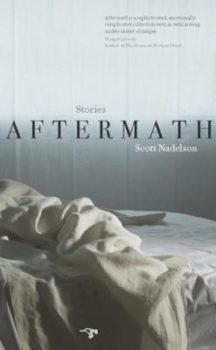 Aftermath‘s epigraph features selections from the work of two poets (Henry Wadsworth Longfellow and Stephen Dunn). The selections are apt and closely mirror the collection’s eponymous theme. Were you reading Longfellow and Dunn while completing the collection, or did the relevance strike you later?
Aftermath‘s epigraph features selections from the work of two poets (Henry Wadsworth Longfellow and Stephen Dunn). The selections are apt and closely mirror the collection’s eponymous theme. Were you reading Longfellow and Dunn while completing the collection, or did the relevance strike you later?
Both the Longfellow and Dunn quotes came after the book was finished, pretty much accidentally. I discovered the Longfellow poem when I was getting ready to send the manuscript out—I wanted to make sure there weren’t any other books called Aftermath, and when I searched the title, up came Longfellow. And I almost fell out of my chair when I read it and saw how beautifully it evoked the feeling I was trying to capture in the stories. The Dunn came soon after and was even more random; an acquaintance posted a link to it on Facebook, and once again I couldn’t believe how perfect it was, how it went straight to the heart of loss and acceptance and a begrudging carrying on—in fact, it did in a few lines so succinctly what I’d tried to do in nearly three hundred pages, that I nearly despaired and considered sticking the manuscript in a drawer. But like all good writers, I decided that if I couldn’t beat them, I’d steal from them, and I went from having no epigraph to having two.
Do have a habit of reading poetry? If so, do you think it affects your prose in any way?
Poetry was my first literary love—after Dylan—and I do read a lot of it, though not in as deliberate a way as I do fiction or nonfiction. Usually I let friends recommend something, or I pick up something at random in a bookstore, and devour a poem or two while I’m pacing my office before class starts. I have a lot of admiration for and envy of what some poets are able to do—the distillation, the direct line to emotion and depth of engagement with the sensual world, the associative leaps and structural experimentation. And I know the more poetry I read, the more closely I pay attention to the rhythm of my sentences, the interplay of sound and syntax and breath.
What advice would you give your younger self?
I think it would be the same advice I give myself now, whenever I feel frustrated or lost, whenever I worry that I’ll never write another decent book or story or sentence: Don’t take yourself too seriously.
I once had a teacher who told me a story about a conversation he had with Grace Paley. He was working with her while at Stanford, complaining to her about how badly the writing was going, how tortured he was by the process. And she turned to him and said, “You don’t have to do it, you know. No one’s sitting around waiting for your next story.”
It may be devastating to realize that no one but you is going to care if you stop writing. But it’s also wonderfully freeing. All pressures and expectations drop away. You don’t have to worry about shaping the future of literature or saving the world. You can just put one word after another for the simple pleasure of making something out of nothing.
Further Links & Resources
- Read Nadelson’s essay “Don’t Look Now: The Drama of Seeing,” originally published in American Literary Review, Spring 2011.
- Feel like snooping? It’s actually a highly literary impulse, as explored in Nadelson’s “Go Ahead and Look”. First published in Oregon Humanities, Spring 2011, it was named a Notable Essay of 2010 by the editors of The Best American Essays.
- Catch up on Nadelson’s guest contributions to Get Behind the Plough (the Ploughshares blog).

